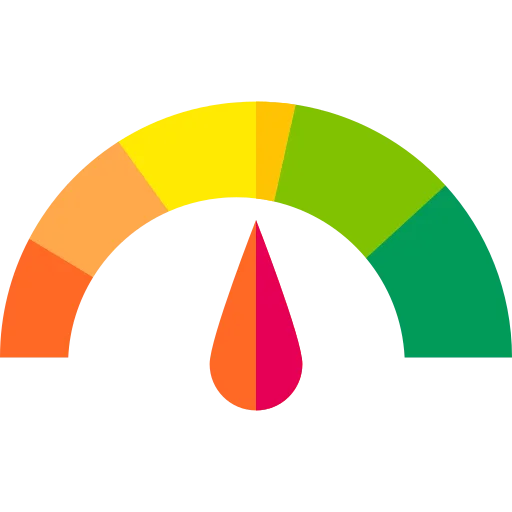Class24’s Digital SAT Prep in Jaipur
Our Trainers + DSAT AI Platform + Personalized Approach = Dream Score

Boost Your Score
Achieve a 1350+ on the Digital SAT, just like 4530+ of our students!

Proven Track Record
Master our exclusive test-taking strategies to manage time and overcome challenges.

Personalized Learning
Choose from flexible online delivery options, including live sessions.

Digital SAT Tutors
Learn from highly-qualified, certified teachers who are subject matter experts.

Digital SAT Practice
Get the latest study resources developed by experienced instructors.

Your Success = Goal
We are committed to helping you reach your target score & achieve your abroad dreams.
Why Class24 SAT Coaching Centers are the Best?
Class24's SAT trainers, course offers, instructional approaches, and course materials are unparalleled in Jaipur and throughout India.
- Fresh, Data-Driven Content: Unlike recycled materials, our resources are constantly updated based on real student data and the latest testing trends. No more irrelevant fluff, just focused strategies that work.
- AI-Powered Practice Platform: Say goodbye to generic practice tests. Our platform simulates the real Digital SAT, adapting to your strengths and weaknesses for a personalized learning experience.
- Expert-Crafted Strategies: Developed by test-taking gurus who scored top percentiles themselves, our strategies are battle-tested and designed to help you crack even the trickiest questions.
Digital SAT Savvy Coaches: Our instructors aren’t just subject-matter experts, they’re digital natives who understand the nuances of the online format. Get tips on navigating the interface, using the calculator effectively, and avoiding digital distractions.
Adaptive Learning: Forget one-size-fits-all. Our platform identifies your weak spots and delivers targeted content to help you shore them up, maximizing your score potential.
Personalized Feedback: Get an in-depth analysis of your practice tests, pinpointing areas for improvement and providing actionable steps to get you there.
Personalized Profile Building: Struggling to showcase your unique strengths? At Class24, we understand the challenges of crafting an impactful profile. Our personalized approach identifies your strengths, achievements, and aspirations, ensuring your profile stands out, and setting the foundation for your dream college journey.
Expert Essay, SOP, LOR Assistance: Stuck in an essay-writing dilemma? Class24 provides personalized assistance in crafting compelling essays, SOPs, and LORs. We understand the challenges applicants face and offer expert guidance to articulate your unique story, making a lasting impression on admission committees.
Tailored University Exploration: Overwhelmed by the sea of options? Class24 eases your decision-making process by assessing your preferences and goals. We specialize in recommending universities and countries that align with your aspirations, providing a roadmap for a successful academic adventure. Ready to ace the Digital SAT your way? Join Class24 and experience the future of test prep.
Class24: Your Undergrad Toolkit

Digital SAT/ACT

AP

Digital PSAT

IELTS, SAT

University Selection

SOP, LOR, Essays

Interviews

Application Support
What is the SAT?
The SAT is a standardized test administered by the College Board in a multiple-choice question format and a few student-produced responses (SPR) type of questions. Administered by the College Board, the test has a section on reading, writing and math with each scored between 200 and 800 points, giving the test a total score range of 400 to 1600. The SAT was typically followed by an optional Essay section, which has not been required for most test-takers since 2021. The SAT test enables the colleges to test some of the academic skills like, reading, writing and math.

Why Choose Class24 for SAT Test Prep?

SAT Whisperers: Our gurus know the test inside-out, guiding you through all four sections with strategic precision.

Adaptive Bootcamp: We customize your preparation based on your strengths, weaknesses, and target score.

24/7 Confidence Boost: Get instant feedback, expert support, and morale shots whenever you need them.

Practice Perfecting: Immerse yourself in real-time simulations, identify your blind spots, and overcome them before the day of the test.

Dream University Calling: We’ll help you craft compelling essays and ace the Speaking section for top school admissions.

Track Record of Success: Class24 has a proven track record of helping students achieve their desired scores in the SAT exam.
SAT Pattern
| Component | Time Allotted (minutes) | Number of questions/Tasks |
|---|---|---|
| Reading and Writing | 64 ( two 32 - minutes modules ) | 54 |
| Break | 70 minute | |
| Math | 70 ( two 35 - minutes modules ) | 44 |
| Total | 134 | 95 |
| Duration 2 hours 14 minutes |
Most of the questions are multiple choice, though some of the math questions ask you to enter the answer rather than select it.

How do you complete the SAT exam on time and avoid rush?
The best practice to make sure you have enough time to complete the SAT without rushing is to learn time management. Get familiar with the test composition and have a practice pacing yourself along during mock exams. For the Reading and Writing sections, first choose the simpler questions and use the process of elimination to spend less time. Do not spend too much time on Math difficult problems—leave and come back to them as time allows. Calm and focused throughout the exam will keep you working efficiently without unnecessary stress.
Full Form of SAT
The full form of SAT Exam is the Scholastic Assessment Test. The College Board introduced this test for overseas candidates who want to apply to different bachelor's level courses at abroad universities.
The SAT is only administered seven months a year and is entirely computerised. Sometimes, people take the SAT even though they are not required to submit their results; this is done to demonstrate to colleges that they can apply.
SAT Online Test Simulations (General & Subject-Specific)
One way to get ready for the SAT test online is by taking SAT online test simulations either for general test or subject specific sections. In this case, the simulations give you a reality check by letting you understand the structure and timing of each Reading, Writing and Math section.Practicing these online tests will help you improve your time management skills, identify areas for improvement, and boost your confidence. It’s the same concept as using Lorem Ipsum in design to create a uniform layout, and these test simulations provide you with just that: a distraction-free environment where you can focus on internalizing the material.
| Conducted by | College Board |
| Exam Centres in India | All major Indian cities |
| Exam Mode | Online |
| Exam Name | SAT (Digital) |
| Most popular for | Undergraduate courses in the US and Canada |
| Conducted by | College Board |
| Exam Centres in India | All major Indian cities |
| Exam Mode | Online |
| Exam Name | SAT (Digital) |
| Most popular for | Undergraduate courses in the US and Canada |
SAT Exam Eligibility 2025
The college board sets no specific eligibility criteria. However, students seeking admission to undergraduate programs should check the requirements on the college website where they want to get admission.
SAT Exam Education Qualification
The College Board has not set any specific education qualification to appear in the SAT exam. Candidates who want to apply for undergraduate studies abroad can appear for the SAT exam after their high school education. Moreover, you can also appear in the exam after graduation if you want to study in a postgraduate program abroad.
SAT Exam Age Limit
If you want to apply for the SAT exam, then you do not need to worry about age. The officials have not decided on any minimum or maximum age limit criteria. Candidates of any age can apply for the SAT Exam. However, candidates aged 17 to 19 can appear in the SAT exam maximum times.
Benefits of Taking SAT Exam 2025
There are many benefits of taking the SAT Exam. Some of them are given below.
- Global Reach: The SAT is accepted by thousands of colleges and universities worldwide, providing flexibility in the selection of educational institutions.
- Showcase Your Potential: The exam assesses critical thinking skills and knowledge essential for success in college, making it a valuable indicator of readiness.
- Unlock Scholarships: Many institutions use SAT scores as a criterion for awarding merit-based scholarships and providing financial assistance to deserving students.
- Exclusive SAT Scholarships: Several institutions additionally provide students with SAT scholarships based on their SAT results and scores.
Universities/Colleges accepting SAT
Contact Us
Frequently asked questions





